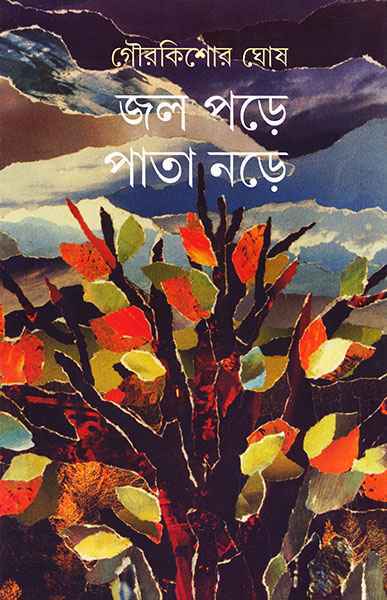Jal Pare Pata Nare
Jal Pare Pata Nare is backordered and will ship as soon as it is back in stock.
Couldn't load pickup availability
Genuine Products Guarantee
Genuine Products Guarantee
We guarantee 100% genuine products, and if proven otherwise, we will compensate you with 10 times the product's cost.
Delivery and Shipping
Delivery and Shipping
Products are generally ready for dispatch within 1 day and typically reach you in 3 to 5 days.
- Author: Gaur Kishore Ghosh
- Genre: Novel
- Format: Hardcover
- ISBN: 9788177569339
- Pages: 248
- Weight: 477 grams
Synopsis:
This novel begins in 1922, a time when Calcutta was brimming with political fervor, preparing for council elections. The Moderates, Swarajists, and No-Changers were fiercely engaged in political battles. Amidst this turbulence, Deshbandhu Chittaranjan Das boldly declared,
"We are not entering the council to cooperate with the British government, but to shake their administration from within!"
At the same time, joint Hindu families were breaking apart, with sections migrating from rural life to the city in search of livelihoods. Jal Pare Pata Nare is an epic social novel that revolves around such a family. While it spans only four years, it captures the timeless essence of rural Bengal, portraying the love, aspirations, despair, conflicts, and traditions of lower-middle-class families.
Alongside, the book presents a realistic portrayal of Hindu-Muslim relations, marked by tension and coexistence, making it a powerful historical document of the time.
This novel is the first part of the three-volume epic series "Desh Mati Manush" (Land, Earth, and People). The second volume, Prem Nei (No Love), received the Bankim Puraskar. After many years, this standalone volume is being republished.
About the Author:
Gaur Kishore Ghosh (born June 22, 1923 – passed December 15, 2000) was a legendary Bengali writer and journalist, born in Jessore district (now in Bangladesh). His childhood was spent in Sylhet’s tea gardens, followed by schooling in Nabadwip. He completed ISC in 1945 and had an extraordinarily diverse career, working as:
- A private tutor, mechanic, waiter, union organizer, dance troupe manager, customs clerk, proofreader, and finally, a renowned journalist.
As a fearless journalist, Ghosh faced imprisonment in 1975 under the MISA (Maintenance of Internal Security Act) during the Emergency. His fight for freedom of speech earned him:
- The Ko Jae Wook Memorial Award (1976, South Korea)
- The Ananda Puraskar (1970)
- The Ramon Magsaysay Award (1981)
- The Bankim Puraskar (1982)





